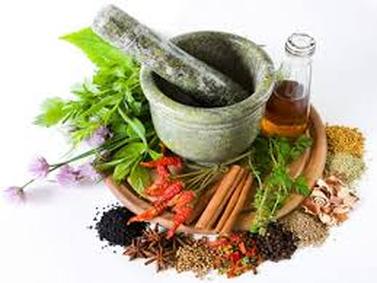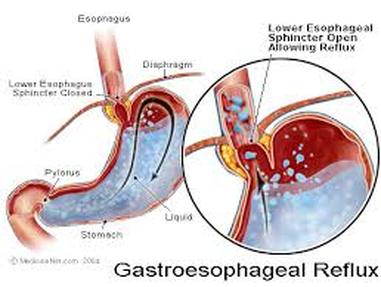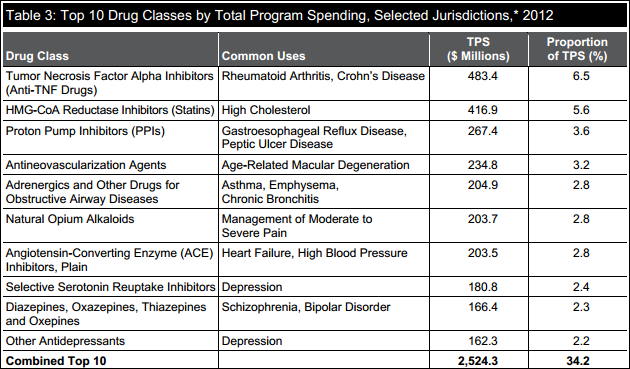While I feel it is always best to work with people directly to root out the cause/s and any nutritional deficiencies one may have stopping them from obtaining their goals in health, I feel education about healthy safe ideas you can try and monitor yourself are essential. For communities to re join the conversation about health and taking health into your own hands again. There are multiple paths to health and healing and YOU are the only one that can make that decision for YOURSELF. Don't surrender, partake in your health journey, and wade through the masses of 'educated experts', to find the knowledge you know to be true.
Talk with you health care professionals and find out the whys.. Why are they prescribing a certain drug or therapy and where did they get the information from. Asking is a conversation, interrogating is a one way conversation to searching for a new healthcare provider. Please be considerate but conscious.
Today I want to talk a little about Gastrointestinal reflux disorder (GERD), acid reflux(GER), and ulcers. An uncomfortable, sometimes painful, burning, sensation that is not always the product of poor diet or stress. 40% of Canadians will suffer for acid reflux at least once a month. 20% will experience this weekly, it is on the rise and allopathic (mainstream) medicine is not addressing the problem they are treating a symptom with a drug that will create other issues.
10% of the people with GER or GERD have a condition known as a hiatal hernia. A hiatal hernia occurs when part of your stomach pushes upward through your diaphragm. Your diaphragm normally has a small opening (hiatus) through which your food tube (esophagus) passes on its way to connect to your stomach. The stomach can push up through this opening and cause a hiatal hernia. These people may have the hardest time getting lifestyle and eating habits adapted to their conditions but it is a continuous journey of conscious adjustments.
The rest of population with acid reflux may have other contributing factors such as
a relaxed lower esophageal sphincter (LES) that does not close properly
- over-production of stomach acid (mainly due to acid forming diet) a link to acid alkaline foods chart.
http://www.wildseedholistichealth.com/resources.html
- increased stomach pressure (tight pants/ waistbands)
- a damaged esophagus with increased acid sensitivity
- irregular eating, skipping meals
- smoking
- caffeine
- stress
- some medications, including diazepam (Valium), meperidine (Demerol), theophylline, morphine, prostaglandins, calcium channel blockers, nitrate heart medications, progesterone, and anticholinergic and adrenergic drugs (drugs that limit nerve reactions)
- paralysis and scleroderma (an autoimmune disease that hardens body organs)
- large meals that distend the stomach and prevent the LES from closing
- alcohol, which lowers the pressure on the LES, allowing it to relax and open. Alcohol also may irritate the esophageal lining
- weakening LES and loss of LES muscle tone with increasing age
- obesity
- lying down within one or two hours of eating
- Pregnancy, which causes the enlarged uterus to displace the stomach, delaying the removal of stomach contents
Many foods are known to contribute to heartburn:
- greasy, fried, or fatty foods and meat
- spicy foods/black pepper
- Highly refined carbohydrates
- such acidic foods as tomatoes, pickles, and vinegar
- chocolate
- coffee with or without caffeine, soda, black teas, carbonated beverages
- Peppermint or other mints like spearmint ( this may relax the LES)

Please go to the hospital if you are experiencing symptoms like a heart attack, even if you think it is just bad digestion. This article in no way is suggesting you take alternate measures in an emergency situation.
One of the prolific treatments/ medications are over the counter antacids, and if GER persists, a Proton pump Inhibitor is prescribed.
Proton Pump Inhibitors drugs currently marketed in Canada
- Dexlansoprazole (sold under the brand name Dexilant)
- Esomeprazole (sold under the brand name Nexium and its generic equivalent)
- Omeprazole (sold under the brand name Losec and its generic equivalents)
- Lansoprazole (sold under the brand name Prevacid and its generic equivalents)
- Pantoprazole (sold under the brand names Pantoloc and Panto IV, and their generic equivalent(s))
- Pantoprazole/magnesium (sold under the brand name Tecta)
- Rabeprazole (sold under the brand name Pariet and its generic equivalents)
They blocks the hydrocloric acid from being excreted in to the stomach.
Hydrocloric acid is important as a first response antibacterial anti viral to our bodies, if in good working order being able to kill pathogens with its high acidity. Hydrochloric acid is also extremely important to the break down of peptic bonds of proteins, turning them into a more usable form or amino acids to the body. With long term use of PPIs we will discover more than what your doctor may inform you of.
Lets just look at a few facts first;
How much are we spending...
Canadians received 12.4 million prescriptions for Proton Pump Inhibitors in 2004.*
Canadians spent $267 million dollars on proton pump inhibitors in 2012.*
42% of GERD patients are dissatisfied with the outcome of drug therapy
Increasing age is recognized as a primary risk factor for the development of GERD.
Moderate or severe symptoms of GERD and GER are indicative of a chronic disease that persists for at least 18 years. (1) Facts taken from the Canadian Digestive Health Foundation
$267 million Dollars for drugs and therapies that are unsatisfactory 42% of the time???
The third highest in Drug spending in Canada according to the Canadian Institute of Health Information.
https://secure.cihi.ca/free_products/Prescribed_Drug_Spending_in_Canada_EN.pdf
Through acceptable study models using both animal(always unethical) and human subjects, it has been found that PPI lower absorption of calcium, B12, iron, and magnesium, also in association with long term use to bone fracture. It increases the risk of H. Pylori, a gut bacteria (not friendly) that is a cause of gastric ulcers and if not kept in check can lead to damage of the gastric lining. (2,5,6,)
Through the American Heart Association I found multiple papers on effects of PPIs and increase risk of major adverse cardiovascular events. (3)
It has also been sited that PPIs increase the risk of;
Enteric infections;
A disease of the intestines caused by an infection. Symptoms similar to those caused by a pathogen, may be produced by chemical toxins ingested in food and by reaction to certain food substances, or medications. (4) Low levels of hydrochloric acid in the stomach may be breeding grounds for pathogenic bacteria.
Pneumonia;
Is an inflammatory condition of the lungs primarily affecting air sacs known as the alveoli. It is usually caused by infection with virus or bacteria, certain drugs and other conditions such as autoimmune diseases. (4)
Gastric acid rebound;
The hyper-secretion of gastric acid that may occur after the initial buffering effect of an antacid.(4)
Stress Ulcer Prophylaxis;
Many patients admitted to the intensive care unit (ICU) have risk factors for stress ulcers, with active bleeding producing a higher rate of mortality (4)
Drug Interactions
Because PPIs give rise to profound and long-lasting elevation of intragastric pH, it is not surprising that they interfere with the absorption of concurrent medications. (5)
These are topics of discussion with your Doctor if you are prescribed any PPI.
So what do we do that might be a little less scary than the percentage of adverse reactions associated with antacids and PPIs??
Over the counter antacids can also carry a little scary, especially when used over a long period of time.
Other than the very similar outcomes taking anything that lowers the stomachs natural pH, over the counter antacids usually contain aluminium. During long term use, aluminium has been shown to deposit in the bone, joints, and the most detrimental; the brain. (7)Accumulated aluminium in the brain is associated with Alzheimer’s. (8,9)

There are many different remedies, and you will have an instinct as to which one will be the remedy for you. Good thing though, none of these remedies are associated with higher risk of cancer, heart attack, mineral or vitamin malabsorption, bacterial overgrowth, diarrhoea, lower immune function, or Alzheimer's!!
You can try any or all of them to see what suits you best.
Try and avoid being in the situation of having acid reflux in the first place, look back on the things that can contribute to it earlier in the post and make sure you are setting up the right routines.
Small regular meals without over eating
Do not drink with a meal but drink in between instead
Eat stress free
Small amounts of protein at a time and eat your proteins before 4 in the afternoon, you build up hydrochloric acid overnight and it is best utilized in the earlier day.
Curb the greasy, meaty meals, vegetable proteins are best
Be aware of your use of alcohol, caffeine and medications, these can be contributing factors.
Stress can lower gastric secretions, try and get stress in check.
Eat a mostly plant based, whole food diet
People with hiatal hernias have higher occurrences of heart burn and may want to also be aware of tomato based food, citrus fruits in larger amounts, and different peppermints.
Propping the bed (not just the pillows) up so that it has a slant may help people with hiatal hernias or chronic acid reflux.
Lying or sleeping on you left side can also help relieve symptoms as it adjust anatomy to create less pressure on the esophageal sphincters. The esophagus enters the stomach on your right side. Sleeping on your left side may help to prevent any food remaining in your stomach from pressing on the opening to the esophagus, which could cause reflux.
Make sure to exercise and move through stretching, deep breathing and some cardio like walking, this helps to de-stress and improves muscle tone even in the smallest of muscle sphincters like the LES.
Keep a food journal, one of the most beneficial diagnostic tools for you and your healthcare provider. This may bring to light certain situations that may bring about acid reflux, like that spicy meal yesterday, or the small piece of chocolate at lunch to wake up in the middle of the night with that burning sensation.
While good habits are being formed (Rome wasn't built in a day and neither is a good habit) there are many remedies that are whole food and natural to try.
Try it
Water
Studies have shown that pure water is more effective in an immediate relief of symptoms than other prescribed or over the counter medication to increase pH. (10) The effect may not last as long but immediate is better than a wait of 1-3 hrs before the drugs can offer relief.
Apple Cider Vinegar
One of the best might be apple cider vinegar, Known and used for thousands of years and no known ill side effects if used in the proper doses.
Use 1 tbsp of organic apple cider vinegar in a glass of pure water to help lower immediate pH. This works immediately and you will feel the effect usually within 30 seconds of swallowing it.
Raw Potato Juice
Juice 1 washed organic potato and take of any new buds or green areas, juice it with the skin on and mix with equal parts of pure water, the naturally occurring plant alkaloid is touted to help acid reflux and stomach ulcers. It also has contributions of vitamins and minerals to help heal intestinal and gastric lining. Please don't exceed 1 large potato per day and don't drink any residual starch at the bottom of the cup.
*The one hesitation I would have to recommend this particular remedy to everyone is that people with inflammatory issues such as arthritis or IBS may in fact be contributing to higher inflammatory responses because same glycoalkaloids. Those without a pre existing inflammatory condition are welcome to try this natural remedy.
Plant Enzymes
You can take a multi-enzyme tablet with meals to help with better digestion. People with occasional acid reflux may want to try the addition of HCL to help digestion.
Those who have a hiatal hernia or are unsure should avoid the addition of HCL to digestive enzymes.
Bromelain and papain are plant enzymes that help ease digestion and can be taken on a regular basis for better digestion and assimilation.
Minerals
Calcium 300mg, Magnesium200mg, and Potassium100mg twice a day have an alkalizing effect that binds up stomach acid. Take them together between meals, or before bed.
MSM( Methylsulfonylmethane) relieves hyperacidity without disrupting normal acid/alkaline balance.
Many people use a tsp of baking soda to cure too much stomach acid but when used on a regular basis may have some negative affects. Baking soda taken in large quantities or over the course of a few weeks can interfere with your body's ability to absorb calcium. Instead, the body ushers the calcium to be excreted through the kidneys where they may deposit and develop into kidney stones. There is extremely low risk factor with those who use it as an occasional remedy. If using as an occasional remedy look for no aluminium brands and do not exceed 2 tbsp/ day for no mare than 3 days.
Herbs
Catnip, fennel,ginger, marshmallow root, and papaya tea all aid in proper digestion and act as buffers to stop heartburn.
These are all natural ways to help acid reflux and hear burn. A few remedies to help heal gastric and esophageal lining are Aloe Vera juice, that can be taking in small amounts throughout the day.
Whole Foods
Cabbage juice is also healing to the stomach and intestinal lining. Cabbage juice is high in substances that protect your gut’s mucous-membrane lining, including L-glutamine, an amino acid, and gefarnate, which stimulates the secretion of mucus from your stomach’s lining. (11)
Vitamins
Vitamin D helps to prevent your esophagus from being destroyed by stomach acids, as it helps to create certain peptides that will root out and eliminate any infections. (12)
Try one, try them all, feel positive that in your whole food choices you are lowering your risks of adverse side effects form drugs.
Remember to address the cause and only treat the symptoms while re-balancing.
Always talk to your health care provider about your choices and how they, with yourself, can be most beneficial to your health management.
Eat well and live vibrantly!
References;
1)Canadian Digestive Health Foundation
http://www.cdhf.ca/en/statistics#Gastroesophageal Reflux Disease (GERD)
2)National Institute of Health Public Access;NIHMSID: NIHMS239233
Association of Long-term Proton Pump Inhibitor Therapy with Bone Fractures and effects on Absorption of Calcium, Vitamin B12, Iron, and Magnesium
http://www.ncbi.nlm.nih.gov/pmc/articles/PMC2974811/
3)American Heart Association;Unexpected Effect of Proton Pump Inhibitors;Elevation of the Cardiovascular Risk Factor Asymmetric Dimethylarginine
http://circ.ahajournals.org/content/128/8/845
4)American Family Physician; Reducing Adverse Effects of Proton Pump Inhibitors
http://www.aafp.org/afp/2012/0701/p66.html
5)PubMed 20608754; Drug-drug interaction profiles of proton pump inhibitors.
http://www.ncbi.nlm.nih.gov/pubmed/20608754
6)Physicians Weekly; Overuse of Proton Pump Inhibitors is Expensive and Dangerous
http://www.physiciansweekly.com/proton-pump-inhibitors-overuse/
7)Drugs.com; Acid Gone Antacid Side Effects
http://www.drugs.com/sfx/acid-gone-antacid-side-effects.html
8)Link between Aluminum and the Pathogenesis of Alzheimer's Disease: The Integration of the Aluminum and Amyloid Cascade Hypotheses
http://www.ncbi.nlm.nih.gov/pmc/articles/PMC3056430/
9) Agency for Toxic Substances and Disease Registry; Aluminium
http://www.atsdr.cdc.gov/phs/phs.asp?id=1076&tid=34
10)PubMed18473176; A glass of water immediately increases gastric pH in healthy subjects.
http://www.ncbi.nlm.nih.gov/pubmed/18473176
11)Intelligent Medicine
http://drhoffman.com/article/ulcers-2/
12)The GERD diet
http://www.gerd-diet.com/gerd-treatment/


